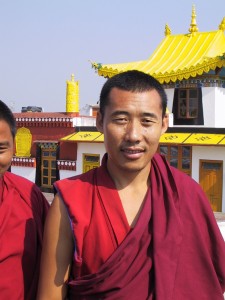
On 28 January 2014 the Intergovernmental Expert Group on the Standard Minimum Rules for the Treatment of Prisoners will meet for four days in Brasilia, Brazil. The United Nations General Assembly created the Expert Group to update the Standard Minimum Rules for the Treatment of Prisoners (SMR), which was drafted in the 1950s. The SMR is a set of rules that outline good principles and practices for the treatment of prisoners and management of prison facilities. The SMR allow for variation depending on legal, social, economic, and geographic conditions. The SMR is not legally binding but it has been widely accepted and helped shaped many States’ national legislation, including those of the People’s Republic of China (PRC).
The original SMR prohibited the use of physical punishments and all forms of cruel, inhumane, or degrading treatment. At the meeting in Brazil the Expert Group will consider proposed changes to the SMR that will increase transparency in prisons.[1] The proposed revisions require deaths during detention or soon after of a prisoner be investigated by an impartial body to ensure that the deaths were not caused by prison officials.
In the People’s Republic of China, prisoners are often subjected to physical punishments, torture and cruel, inhumane, and degrading treatment. When Geshe Sonam Phuntsok[2] was sent to prison for initiating a life-long prayer offering for the Dalai Lama, he was a healthy 48-year-old monk. When his family visited him in prison, Geshe Sonam Phuntsok had lost weight, was semiconscious, and was unable to move properly. When he was released five years later, Geshe Sonam Phuntsok was hospitalized. Geshe Sonam Phuntsok’s treatment in prison left his body broken and he died less than three and a half years after his release.
The PRC made no effort to investigate Geshe Sonam Phuntsok’s treatment during his detention. Because Geshe Sonam Phuntsok was a popular religious figure, 3,000 Tibetans protested for his immediate release. The protesters were arrested and subject to frequent beatings during their detention. One protester was beaten to death during detention. Not only was his death never investigated, the beatings of the remaining prisoners continued as if nothing had happened.[3]
The PRC has adopted a practice of releasing prisoners early so that they do not die in the prison. In 2008, Dawa, a 31-year-old farmer from Dedrong Village, Jangkha Township, Phenpo Lhundup County, Lhasa City, TAR, was severely tortured during his 12 days in detention.[4] He was released in critical condition and immediately hospitalized. After four days, Dawa died. The PRC responded to Dawa’s death by fining his family 1,000 yuan (US$125).
The PRC’s conduct has not changed in recent years. Ngawang Jamyang died after less than a month in detention. [5] Like Geshe Sonam Phuntsok and Dawa, Ngawang Jamyang was strong and healthy when he was arrested. When his body was returned to his family it was clear he was beaten to death. Rather than investigate the death, the police threatened Ngawang Jamyang’s family that they would “meet the same fate” if they spoke about Ngawang Jamyang.
The proposed new revision to the SMR would require an impartial investigation to determine whether the deaths during or shortly after detention was a result of the treatment in detention. According to TCHRD’s record, 87 prisoners were tortured and died either in detention or shortly after their release between 1987 and early 2005.[6] As the case of Dawa illustrates, the PRC has attempted to prevent deaths in prisons not by following the guidance of the SMR and improving the treatment of prisoners, but by releasing prisoners so they can die outside of the prison.
The PRC’s practice of releasing prisoners who are about to die is a deliberate attempt to circumvent the intent of the SMR. Unsurprisingly, the PRC opposes to requiring investigations of deaths that occur shortly after a prisoner is released. Including such a requirement would require the PRC to explicitly refuse to follow the rules or require the PRC to investigate the widespread mistreatment of prisoners that it refuses to acknowledge and attempts to hide from the world.
TCHRD commends the Expert Group for proposing rules that recognize and address attempts by prison officials to avoid responsibility for killing prisoners. TCHRD urges the Expert Group to adopt the proposed rule, requiring the investigation of deaths in prison or shortly following a prisoner’s release, unchanged.
